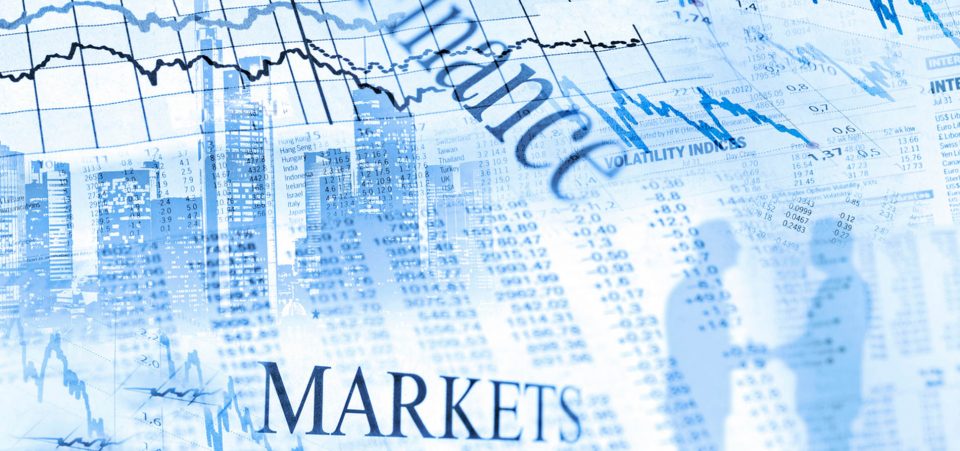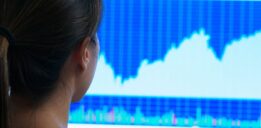A Major Stock Market Crash Is Imminent; It Could Trigger Economic Collapse
Six months into his presidency, Donald Trump has not really changed much in Washington. But he has confused America’s international relationships. Wall Street is on fire for now, but a major stock market crash is imminent because there are no coherent policies. The U.S. economy is entering an ever more confused path.
After the first months of his election, Trump’s campaign promises have all but disappeared. None of the reasons why voters turned to Trump last November can be discerned at the White House. The tax plan hasn’t gone through and U.S. jobs are still moving abroad while the promised infrastructure reinvestment plan has vanished amid the papers nobody’s reading in the Oval Office. The next stock market crash is not going to go unnoticed. It won’t be a mere correction and it will produce another major recession.
Also Read:
Stock Market Crash 2017? This Could Trigger a Stock Market Collapse
Warren Buffett Indicator Predicts Stock Market Crash in 2017
This might not be Trump’s fault entirely. Unfortunately, Washington has a way of working that few presidents of the post-World War II era have ever managed to change. Some have tried, but they inevitably failed. It seems Trump likes being in the White House, because he has already started his re-election campaign. He understands now that to win again, he has to change his message and change his audience.
It’s No Longer About Making America Great Again
Trump’s priority has shifted from “Making America Great Again” to “Cannot Say No to the Lobbies and Special Interests.” Trump’s committed voters may have noticed this by now. But, committed investors and the markets have not. The latter group are still under the impression that Trump will be able to fulfill his campaign program.
But the more politically inclined have already become disillusioned. When the investors come to the realization of the voters, that’s when the stock market crash of 2017 will happen. To be re-elected, Trump cannot stray too far off the same program that Presidents Obama and G.W. Bush followed before him. These are the same programs that promote so-called globalization.
It’s anybody’s guess now, which parts of his “America First” program will remain. Certainly, so far, there’s not much evidence of “America First.” Trump was voted in as a populist to address the needs of the average American, who may or may not have lost his job during the Great Recession after the September 2008 market crash.
Instead, Trump will likely put the job creation policies based on slowing down free trade and securing fairer trader deals with China or Europe in the closet for now. Instead, the banks appear to be ready to get what they want. They wanted more deregulation and that’s what they’re getting.
Trump is giving Americans more of the same Wall Street banker-friendly policies that gave us the bailout of 2009. American bankers and the world of finance could only have dreamt about it. Trump did not seem to be intent on doing their bidding during the campaign. In fact, many Bernie Sanders fans voted for Trump instead of the Democratic candidate, Hillary Clinton.
Wall Street Called Trump and It Wants 2008 Back
She was known as the “Goldman Sachs candidate.” It turns out that Trump was one of their candidates as well. The risk of re-igniting another major stock market crash and a global financial crisis in 2017 hasn’t phased President Trump at all. Of all his campaign promises, he’s made the one about unraveling the whole series of banking and financial regulations in the Dodd-Frank Wall Street Reform and Consumer Protection Act a priority.
The Dodd-Frank was adopted in 2010 in the aftermath of the subprime crisis and the market crash of 2008. Its shockwave reached the whole world. Not surprisingly, infamous celebrities such as Steve Bannon, who have gotten so much attention from the media, are now playing second or third fiddle.
It’s such people as Gary Cohn, a former investment banker from Goldman Sachs Group Inc (NYSE:GS) who has the president’s ear. Others include David Malpass, a former chief economist at Bear Stearns. He was famous for tuning out the warning of a financial collapse in 2008, shortly before it happened. Now, he’s a powerful Undersecretary to the Treasury for international affairs who can obscure the official Secretary of the Treasury, Steven Mnuchin.
But Americans have been too busy following former FBI chief James Comey’s hearing to notice that the Dodd-Frank has been overturned. Comey and the new Russiagate chief prosecutor Robert Mueller could yet impeach Trump. But all that would do is accelerate or prolong the economic collapse that’s already taking shape. Besides, in the eventuality of an impeachment, an eventual President Pence would be even more prone to manipulation from the traditional Washington and Wall Street-vested interests. Americans have nowhere to hide.
Trump Has Been Entrapped in the Same Old Wall Street-Washington Games
In short, the time for the likes of Bannon is over. Trump has been forced back to follow the same neoliberal policies of his predecessors. This means that many of the issues Trump had rallied against, from free trade to more wars in the Middle East and the poor state of relations with Russia’s Vladimir Putin, are vanishing. As a matter of fact, especially where Russia and the Middle East are concerned, Americans might well be wondering if Hillary Clinton is actually president, since Trump is following her campaign agenda rather than his own.
Those who had hoped for protectionism must now prepare to pay tribute to multinational corporations and big finance. That tribute will take the form of a stock market crash. Trump started his presidency with big plans. He wanted to stop immigration and abolish multilateral trade deals. Well, immigrants continue to arrive. That’s not necessarily a bad thing, since many key economic sectors in the U.S.A. need them to grow and return value to investors.
But, now, if you voted for Trump because you did not like the trade deal with emerging Asian powers, the Trans-Pacific-Partnership (TPP), get ready to be disappointed. At this point, Trump might revive it. He will simply make a point of renegotiating it, to present it as “new and improved.” Not even the border tax, another strong point of the Trump campaign, seems destined to survive.
The big question is whether the corporate tax reduction to 15% from 35% will survive. Trump and his supporters believed this to be the only measure that could help U.S. companies compete with Mexico or China. Moreover, this very tax cut was the reason that the Dow and the Nasdaq have hit all-time records on Wall Street. That’s what has driven the market bubble and the insane P/E ratios and valuations.
If these fail to materialize, investors can take out their handkerchiefs to wave the big gains goodbye. And this time, it might as well be farewell, because the next stock market crash will be hard and inflict a new economic recession, if not a downright economic depression.
But that will still be a consolation compared to the other big risk of 2017: World War 3. Congress debates on Trump’s alleged role in the Russia hacking, because they have little else to do, it seems. Hostilities between Russia and the United States are reaching fever pitch levels. Every day could be the occasion of another Cuban Missile Crisis-style confrontation.
But, whereas in 1962, the risks were contained within Cuba; now, the risks are in the Black Sea, the Middle East, and the Baltics. The markets haven’t noticed this for some reason; they’re too distracted by the FBI and CNN witch hunts to notice the massive risk to the economy, not to mention life on earth, should sparks start flying beyond the rhetoric.







